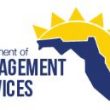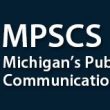LMR licensing activity remains fairly level in 2019, public-safety sector hits another all-time low
Land-mobile-radio licensing activity in 2019 again hovered near record-low levels, with public-safety applications dipping slightly to an all-time low and the business-industrial sector potentially seeing a slight increase, according to information in the FCC’s online Universal Licensing System (ULS) database.
A total of 2,952 public-safety licensing applications submitted in 2019 have been granted, with another 249 applications pending approval. If all pending public-safety applications were approved—a highly unlikely occurrence, based on licensing history—the 3,191 figure narrowly would trail the 3,193 public-safety licenses granted in 2018, which set an all-time low mark.
Although virtually at the same level as last year, the 2019 public-safety LMR licensing figures mark the seventh consecutive year that public-safety licensing has decline and the third consecutive year with an all-time low record since the online ULS was established in 2001.
Public-safety licensing had trailed the 2018 pace by a substantial margin for most of the year but almost matched last year total with an end-of-the-year flurry of applications being submitted. Leading this batch of applications late in 2019 was Los Angeles County, which submitted 48 licensing applications on Dec. 31 and 80 applications during the final four business days of the year.
Los Angeles County’s applications are part of the Los Angeles Regional Interoperable Communications System (LA-RICS) upgrade of its LMR system that utilizes T-Band spectrum, according to LA-RICS Executive Director Scott Edson. More than 50% of the LMR construction is either completed or underway—as well as work on 26 public-safety-grade LTE sites for FirstNet—and the upgraded LMR system is scheduled to be operational by the end of 2021, Edson stated in an e-mail response to inquiries from IWCE’s Urgent Communications.
If all pending public-safety LMR applications are granted, the 3,191 total would represent a 24.9% decrease since 2015 and a 69.9% decline since 2012, when the FCC narrowbanding mandate created a “bubble” of activity in the LMR arena.
In the business-industrial sector, 9,852 licenses had been granted as of this morning, with an additional 1,116 still waiting to be processed. If all pending applications were approved—again, a highly unlikely occurrence—the 10,968 business-industrial licenses would represent a 2.5% increase compared to the 10,699 business-industrial licenses granted in 2018.
Realistically, the final business-industrial LMR licensing numbers probably will be closer to a 1% increase. This would mark the second consecutive modest increase for business-industrial LMR licensing after five consecutive years of significant declines. The 2019 total of business-industrial licenses granted will safely greater than the all-time low mark of 10,276 established in 2017.
But 2019 will mark the third consecutive year that the FCC has granted fewer than 11,000 business-industrial licenses—a threshold that was not reached prior to 2017, even when the global economy neared collapse in 2008 and 2009.
If all pending business-industrial LMR applications are granted, the 10,968 total would represent a 38.7% decrease since 2015 and a 62.9% decline since 2012.

















